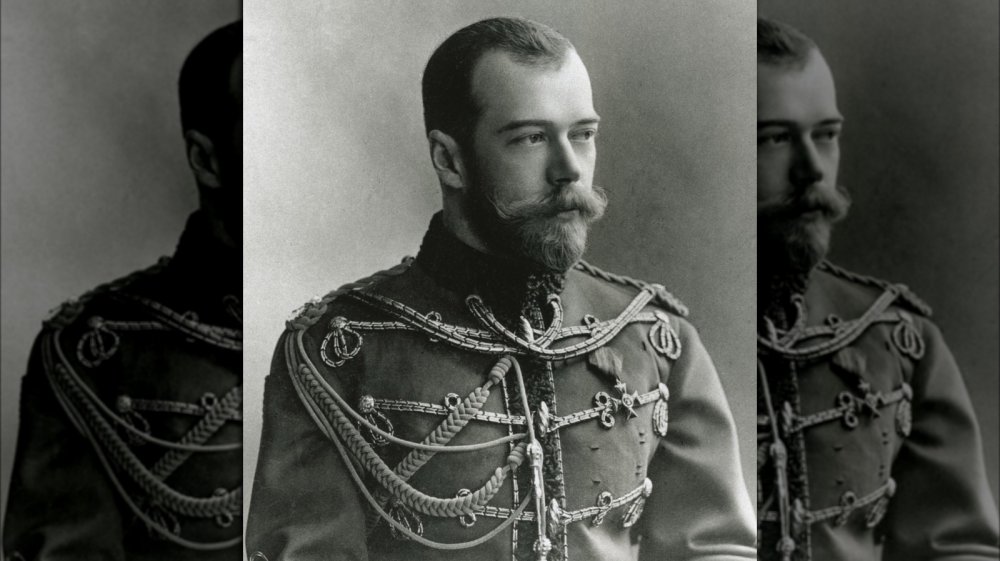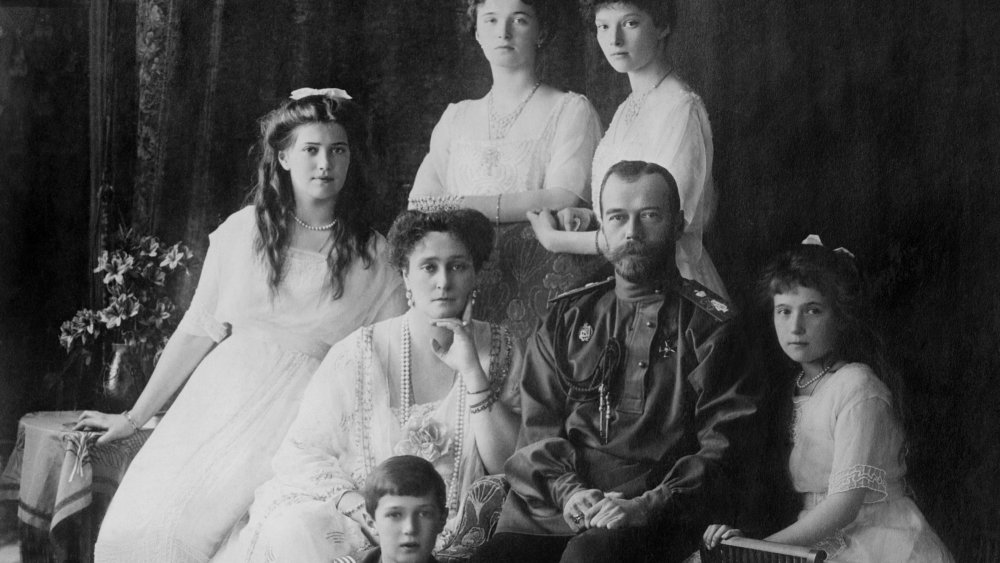Inside The Final Days Of Russia's Last Czar
Czar Nicholas II of Russia, Nicholas Romanov, the last czar, took the throne as Czar of Russia after his father's unexpected death in 1894. "I am not prepared to be Czar," said Nicholas. "I never even wanted to become one. I know nothing of the business of ruling." Emperor Alexander III, Nicholas's father, had died at age 49 of kidney disease, says Biography, but apparently had not taken the time (or made the effort) to teach his son a thing or two about governance. Or, at least, how not to upset your entire country to the point of rebellion.
To give Czar Nicholas II a little credit, his father probably couldn't have taught him much, since the country was already in a state of political restlessness when Nicholas became ruler in 1894. The coronation ceremony was a disaster. Sure, a lot of people showed up, near 500,000, and 1,400 of them were trampled to death. This set the pace for his disastrous reign.
Thanks to the czar's leadership, Russia fought a war that the people detested, killed civilians during a peaceful protest, and ran a government that couldn't get along internally. His connection to the infamous Grigori Rasputin, along with Nicholas's mishandling of World War I, ultimately led to the czar's downfall. Basically, the people weren't happy, and Nicholas made it all worse.
The end of the Russian monarchy
Russia sustained over 1.8 million casualties during WWI, according to History, under Nicholas II's leadership. The shortage of men at home, since they were dying on the battlefield, caused the food and transportation systems to collapse. As expected, starving led the people to revolt. Czar Nicholas II refused to give up his position when the country initially demanded it, waiting until March of 1917 to finally abdicate. At this point, he assumed the country was appeased enough to leave him in peace. He was wrong.
By November, the Bolsheviks had control of the government. This was bad news for Nicholas. He pleaded for asylum in England or France, and both countries turned him down. It's doubly messed up since his wife was the granddaughter of England's Queen Victoria. Nicholas and the Romanov family were soon captured by the Bolsheviks and imprisoned in an uncomfortable house in the chilling, empty cold of Siberia. The house guards were said to have hassled the family, including writing poems of a lewd nature about Nicholas's wife on the walls. The house itself was old, unfurnished, and dusty.
On July 17, 1918, the guards woke the Romanovs and convinced them they were getting ready to change locations. The family packed up their few possessions and went willingly. Suddenly, their captors turned and shot them down, then beat and stabbed the corpses. When Nicholas Romanov died, so did the Russian monarchy.

